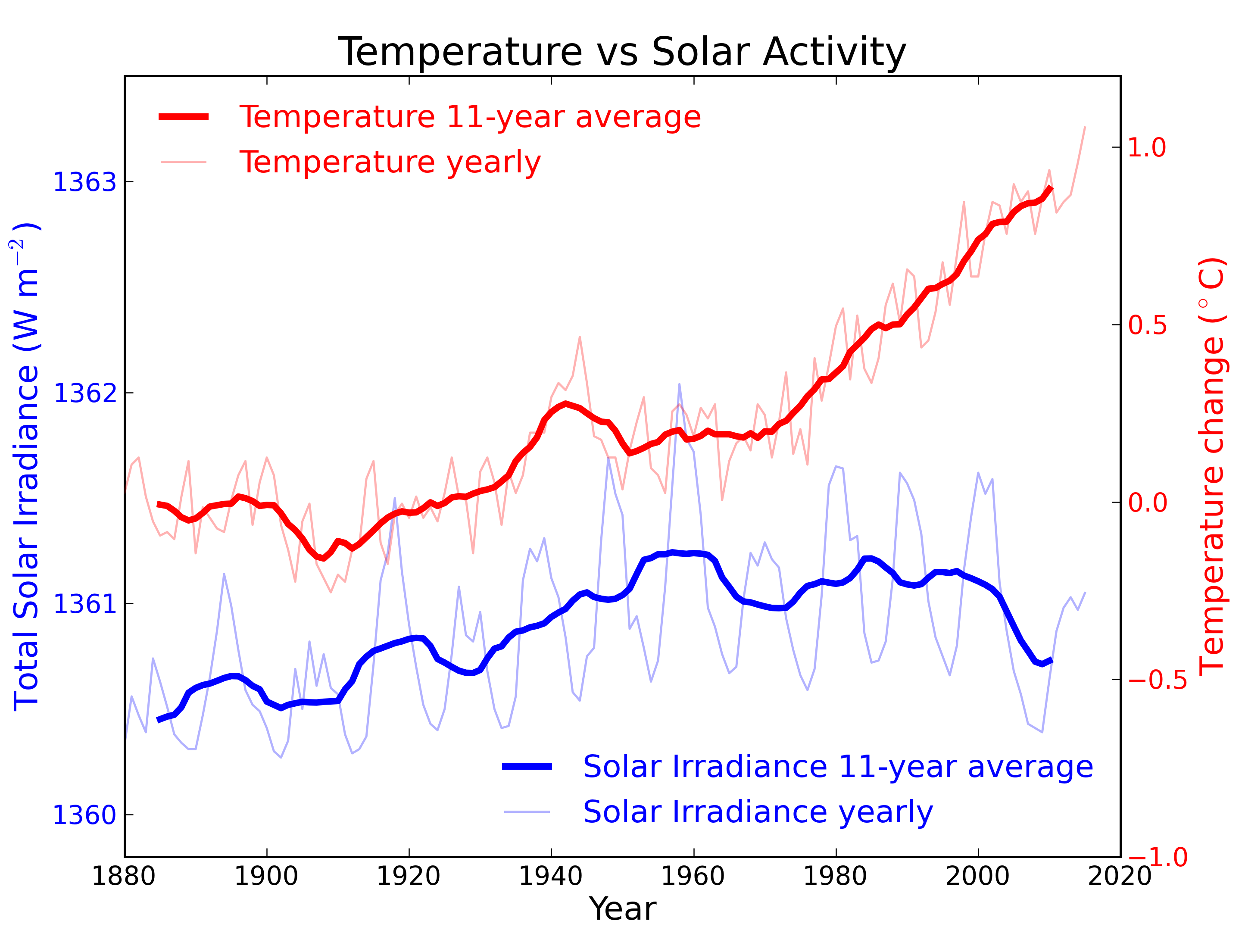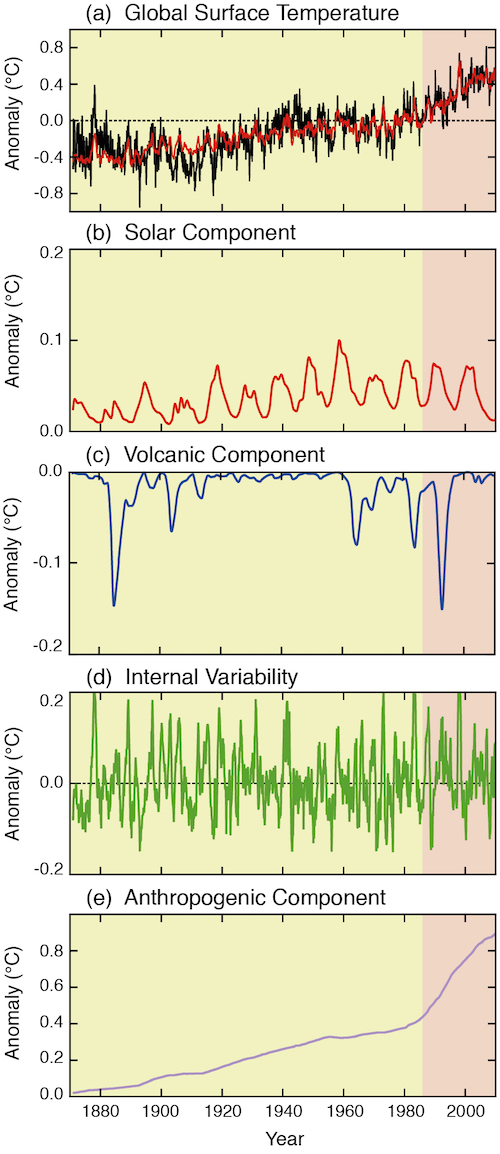 Arguments
Arguments
 Software
Software
 Resources
Comments
Resources
Comments
 The Consensus Project
The Consensus Project
 Translations
Translations
 About
Support
About
Support


Latest Posts
- EGU2024 - An intense week of joining sessions virtually
- Skeptical Science New Research for Week #16 2024
- How extreme was the Earth's temperature in 2023
- At a glance - Is the science settled?
- What is Mexico doing about climate change?
- 2024 SkS Weekly Climate Change & Global Warming News Roundup #15
- Fact Brief - Did global warming stop in 1998?
- Skeptical Science New Research for Week #15 2024
- EGU2024 - Picking and chosing sessions to attend virtually
- At a glance - The Pacific Decadal Oscillation (PDO) is not causing global warming
- Climate Adam: Is Global Warming Speeding Up?
- 2024 SkS Weekly Climate Change & Global Warming News Roundup #14
- Gigafact and Skeptical Science collaborate to create fact briefs
- Skeptical Science New Research for Week #14 2024
- How can I make my retirement plan climate-friendly?
- At a glance - Global warming and the El Niño Southern Oscillation
- A data scientist’s case for ‘cautious optimism’ about climate change
- 2024 SkS Weekly Climate Change & Global Warming News Roundup #13
- Skeptical Science New Research for Week #13 2024
- You can start applying for the American Climate Corps next month
- At a glance - Human fingerprints on climate change rule out natural cycles
- Want clean electricity? These are the overlooked elected officials who get to decide.
- 2024 SkS Weekly Climate Change & Global Warming News Roundup #12
- Climate - the Movie: a hot mess of (c)old myths!
- Skeptical Science New Research for Week #12 2024
- Climate Adam: Could the Amazon Rainforest Collapse?
- At a glance - Does CO2 always correlate with temperature?
- The U.S. has never produced more energy than it does today
- 2024 SkS Weekly Climate Change & Global Warming News Roundup #11
- Skeptical Science New Research for Week #11 2024
Archived Rebuttal
This is the archived Basic rebuttal to the climate myth "It's the sun". Click here to view the latest rebuttal.
What the science says...
|
The sun's energy has decreased since the 1980s but the Earth keeps warming faster than before. |
Over the last 35 years the sun has shown a cooling trend. However global temperatures continue to increase. If the sun's energy is decreasing while the Earth is warming, then the sun can't be the main control of the temperature.
Figure 1 shows the trend in global temperature compared to changes in the amount of solar energy that hits the Earth. The sun's energy fluctuates on a cycle that's about 11 years long. The energy changes by about 0.1% on each cycle. If the Earth's temperature was controlled mainly by the sun, then it should have cooled between 2000 and 2008.

Figure 1: Annual global temperature change (thin light red) with 11 year moving average of temperature (thick dark red). Temperature from NASA GISS. Annual Total Solar Irradiance (thin light blue) with 11 year moving average of TSI (thick dark blue). TSI from 1880 to 1978 from Krivova et al 2007. TSI from 1979 to 2015 from the World Radiation Center (see their PMOD index page for data updates). Plots of the most recent solar irradiance can be found at the Laboratory for Atmospheric and Space Physics LISIRD site.
The solar fluctuations since 1870 have contributed a maximum of 0.1 °C to temperature changes. In recent times the biggest solar fluctuation happened around 1960. But the fastest global warming started in 1980.
Figure 2 shows how much different factors have contributed recent warming. It compares the contributions from the sun, volcanoes, El Niño and greenhouse gases. The sun adds 0.02 to 0.1 °C. Volcanoes cool the Earth by 0.1-0.2 °C. Natural variability (like El Niño) heats or cools by about 0.1-0.2 °C. Greenhouse gases have heated the climate by over 0.8 °C.

Figure 2 Global surface temperature anomalies from 1870 to 2010, and the natural (solar, volcanic, and internal) and anthropogenic factors that influence them. (a) Global surface temperature record (1870–2010) relative to the average global surface temperature for 1961–1990 (black line). A model of global surface temperature change (a: red line) produced using the sum of the impacts on temperature of natural (b, c, d) and anthropogenic factors (e). (b) Estimated temperature response to solar forcing. (c) Estimated temperature response to volcanic eruptions. (d) Estimated temperature variability due to internal variability, here related to the El Niño-Southern Oscillation. (e) Estimated temperature response to anthropogenic forcing, consisting of a warming component from greenhouse gases, and a cooling component from most aerosols. (IPCC AR5, Chap 5)
Some people try to blame the sun for the current rise in temperatures by cherry picking the data. They only show data from periods when sun and climate data track together. They draw a false conclusion by ignoring the last few decades when the data shows the opposite result.
Basic rebuttal written by Larry M, updated by Sarah
Update July 2015:
Here is a related lecture-video from Denial101x - Making Sense of Climate Science Denial
Updated on 2017-04-02 by Sarah.
THE ESCALATOR

(free to republish)
























































